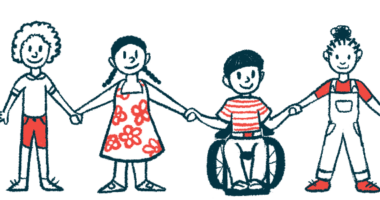How Communication Helps When My Sons Try New Things

New places, new people, new things: They’re exciting! As a parent, I encourage my children to try new things, step outside their comfort zones, and see what the world has to offer.
There is no difference in how I parent my children with Duchenne muscular dystrophy (DMD) and my children without DMD when they’re trying new things. And recently, my sons with Duchenne have been doing an excellent job of trying new things. Accordingly, I’m figuring out how to support them.
Max, my oldest son who’s 16, has decided he would like to help manage his school’s show choir. In truth, he would love to be in the show choir. He auditioned his first year and didn’t make it. The choreography was challenging, and the physical limits that DMD put on his body made it very difficult. It was so tricky, in fact, that he said if he had made it, he would have declined the invitation because it would have been too physically demanding.
However, watching their success and fun from afar during the school year, he knew he wanted to be a part of it. He asked for my help to talk to his director about it, so I reached out. In my initial email, I said that although we’ve never done show choir, we are experts at doing things that have never been done before, so the director should have faith in us. We haven’t finished the conversation yet, but it will happen. I’ll update you in the fall.
I’ve learned that to support my boys in trying new things, I need to communicate regularly with the people they’d be working with. I always present an energetic, enthusiastic, and confident front, especially if I’m unsure how we’ll manage.
We have a record of wins when trying new things. Either we win because we get it done, or we win because we learn so much that the next time we try something new, I have that much more information at my disposal.
Additionally, Max was invited to participate in the Ambassadors of Music program and travel to Europe next summer to perform in five European countries. This is a crazy awesome opportunity for Max, and he wants to go. It reminds me of businessman Harvey Mackay’s quote: “If you get a chance, take it. If it changes your life, let it.”
We have decided to support him and see if there’s a way to make it happen. The first step was an informational meeting and discussion with the presenters about travel and wheelchair accessibility on the European tour. The conversation led to an email exchange and consultation with the travel agency. We don’t have answers yet, but I hope it will work out.
Again, immediate communication with all parties involved has allowed my husband and me to support our son as he explores the world.
Finally, my youngest son with DMD, 11-year-old Charlie, has decided, with the help of his parents, to attend a middle school none of his older four siblings have attended. We toured it last Friday, and he was so impressed. He told me that he was a little scared, but also excited after meeting the new teachers.
Charlie was in his chair during the tour. He uses a Pride Mobility Go Chair Med, a medical-type scooter that resembles a wheelchair. During the tour, we explained to the PE teacher that he can get out of his chair, but needs it for long distances. Then we met the band instructor. Charlie stayed in his chair during our conversation because we were busy talking about getting Charlie caught up with his peers. After all, his elementary school does not have a band for fifth graders.
The band instructor recommended summer band. Charlie is not yet signed up, as I had to first send an email to explain DMD and how it might affect which instruments he’ll be able to play successfully. I exchanged a couple of emails, and now Charlie is all set to try a new school and a new instrument!
Trying new things is the best way to discover your passion. Max found his love and now has a once-in-a-lifetime opportunity at his fingertips. Charlie is just starting out and prayerfully will find a passion of his own.
It’s beautiful to see my sons try new things. I will support them every step of the way by modeling good communication, and hopefully, I will teach them how to communicate on their own behalf.
Note: Muscular Dystrophy News is strictly a news and information website about the disease. It does not provide medical advice, diagnosis, or treatment. This content is not intended to be a substitute for professional medical advice, diagnosis, or treatment. Always seek the advice of your physician or another qualified health provider with any questions you may have regarding a medical condition. Never disregard professional medical advice or delay in seeking it because of something you have read on this website. The opinions expressed in this column are not those of Muscular Dystrophy News or its parent company, Bionews, and are intended to spark discussion about issues pertaining to muscular dystrophy.








Leave a comment
Fill in the required fields to post. Your email address will not be published.